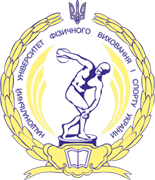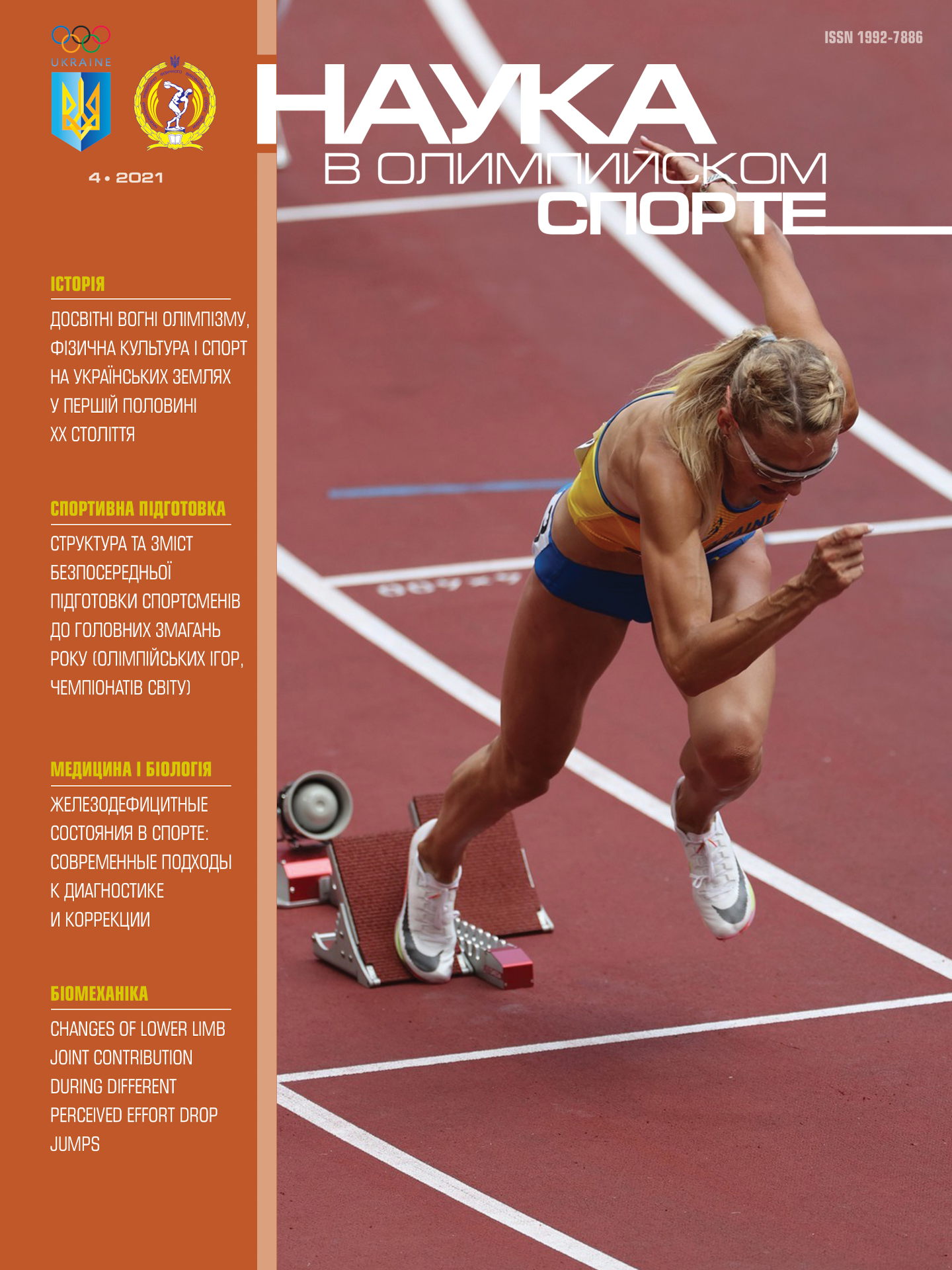Abstract:
Identification of the team roles of hockey players taking into account personal characteristics Valentina Voronova, Nadezhda Vysochina, Aleksei Mikhnov
Objective. Identification and systematization of psychological components of the personality of hockey players depending on their team roles.
Methods. Theoretical analysis and generalization of the data of scientific and methodological literature, Internet resources, and experience of best practices; pedagogical observation; analysis of competitive activity; methods of psychodiagnosis; method of expert assessments; methods of mathematical statistics.
Results. The influence of psychological characteristics and qualities of the hockey player’s personality on the playing position selection was revealed. The specific aspects of players' preparedness, which affect the decision on further playing specialization, were identified. The psychological characteristics, which are informative for hockey, are systematized, as well as their priority significance and peculiarities of manifestation is established for athletes with different playing roles (central striker, side striker, defender, goalkeeper). The features of the manifestation of various psychological parameters were identified taking into account the team role of hockey players. The study found significant correlations between the effectiveness of competitive activity and the level of manifestation of the psychological characteristics and personal qualities of elite hockey players. The level of self-esteem of a hockey goalkeeper was shown to have the positive correlation with various indicators of attention and the negative one with the level of stress and anxiety in the athlete. Analysis of the factor structure of psychological preparedness indicates that all team roles require attention characteristics (accuracy in actions requiring concentration of attention, the speed of processing information, etc.); the roles of side and central striker require accuracy and concentration of attention; and the role of defender require accuracy in actions requiring concentration of attention and speed of information processing.
Conclusions. Team role selection in hockey is a multifactorial process that requires the consideration of a variety of criteria and indicators, especially: playing potential, the level of development of motor qualities, and psychological characteristics of athletes.
Objective. Identification and systematization of psychological components of the personality of hockey players depending on their team roles.
Methods. Theoretical analysis and generalization of the data of scientific and methodological literature, Internet resources, and experience of best practices; pedagogical observation; analysis of competitive activity; methods of psychodiagnosis; method of expert assessments; methods of mathematical statistics.
Results. The influence of psychological characteristics and qualities of the hockey player’s personality on the playing position selection was revealed. The specific aspects of players' preparedness, which affect the decision on further playing specialization, were identified. The psychological characteristics, which are informative for hockey, are systematized, as well as their priority significance and peculiarities of manifestation is established for athletes with different playing roles (central striker, side striker, defender, goalkeeper). The features of the manifestation of various psychological parameters were identified taking into account the team role of hockey players. The study found significant correlations between the effectiveness of competitive activity and the level of manifestation of the psychological characteristics and personal qualities of elite hockey players. The level of self-esteem of a hockey goalkeeper was shown to have the positive correlation with various indicators of attention and the negative one with the level of stress and anxiety in the athlete. Analysis of the factor structure of psychological preparedness indicates that all team roles require attention characteristics (accuracy in actions requiring concentration of attention, the speed of processing information, etc.); the roles of side and central striker require accuracy and concentration of attention; and the role of defender require accuracy in actions requiring concentration of attention and speed of information processing.
Conclusions. Team role selection in hockey is a multifactorial process that requires the consideration of a variety of criteria and indicators, especially: playing potential, the level of development of motor qualities, and psychological characteristics of athletes.













